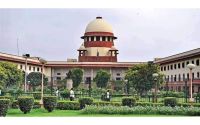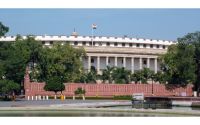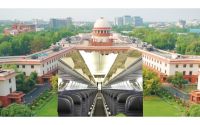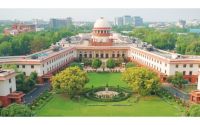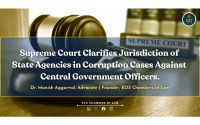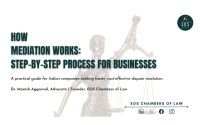SC : Divorce Can Be Granted On ‘Grounds Of Irretrievable B

SC : Divorce Can Be Granted On ‘Grounds Of Irretrievable Breakdown’
The Supreme Court on May 1 held that it can use its extraordinary powers to do “complete justice” under Article 142 of the Constitution and dissolve a marriage on the ground of ‘irretrievable breakdown’ of the union.
Usually, the apex court has to refer the parties back to the family courts concerned for a long wait for a formal decree of separation and divorce.
Read More >
Post Categories
Featured Posts
Latest Posts
Latest Posts
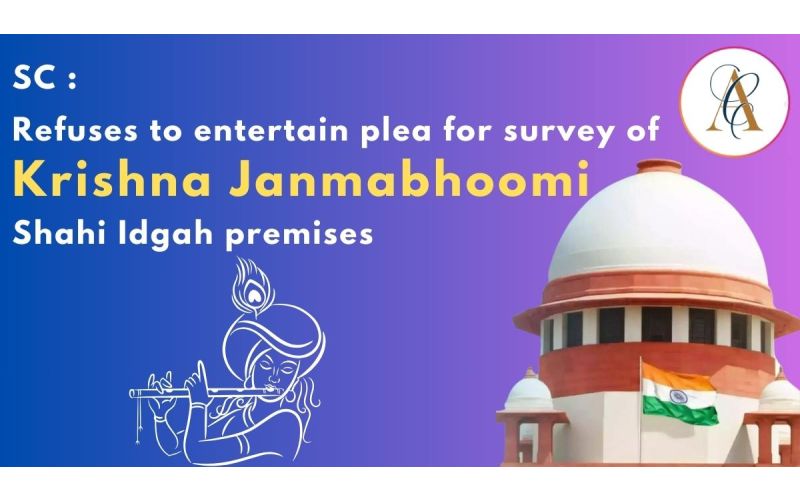
SC refuses to entertain plea for survey of Krishna Janmabhoomi-Shahi Idgah premises
The Supreme Court Friday refused to entertain a plea by 'Shri Krishna Janambhoomi Mukti Nirman Trust' seeking a survey of the Janmabhoomi-Shahi Idgah mosque premises in Mathura to determine whether it was built on a pre-existing Hindu temple. The apex ...
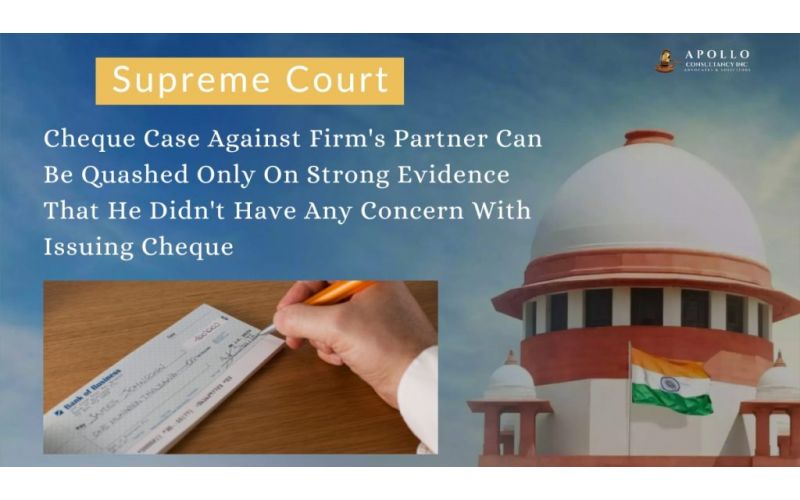
Cheque Case Against Firm’s Partner Can Be Quashed Only On Strong Evidence That He Didn’t Have Any Concern With Issuing Cheque : Supreme Court
The Supreme Court observed that a cheque case against a partner of the firm cannot be quashed under Section 482 CrPC unless there is unimpeachable and incontrovertible evidence that he/she did not have any concern with the issuance of cheques. ...
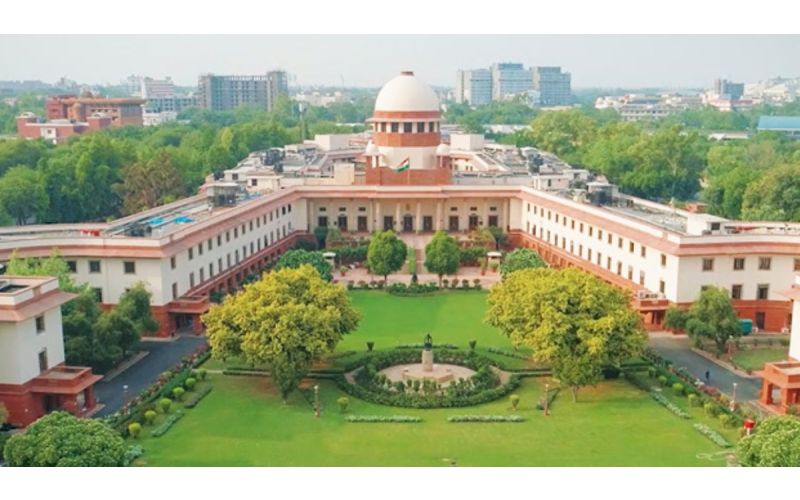
SC Criticises Trend Of Seeking Bail Under Guise Of Challenging Validity Of PMLA In Money Laundering Cases
Article 32 of the Constitution gives individuals the right to approach the Supreme Court if they feel their fundamental rights have been violated. Supreme Court on Tuesday deprecated the trend of the accused in money laundering cases using Article 32 ...
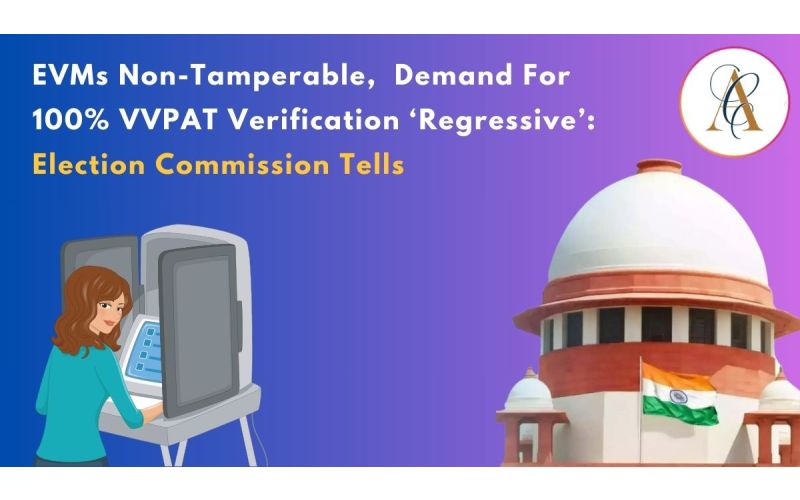
Supreme Court Dismisses PIL Seeking Independent Audit Of EVM Source Codes
The Supreme Court on Friday refused to entertain a Public Interest Litigation (PIL) seeking an independent audit of source codes of Electronic Voting Machines (EVMs). The bench comprising CJI DY Chandrachud, Justice JB Pardiwala, and Justice Manoj Misra noted that ...
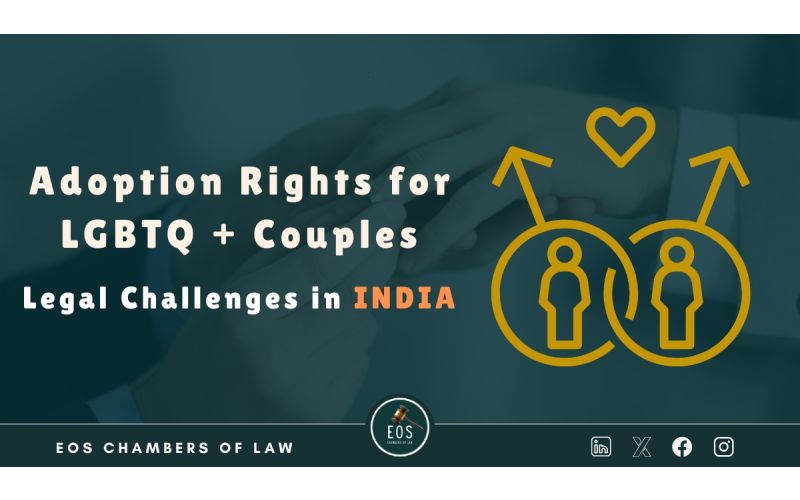
Adoption Rights for LGBTQ+ Couples: Legal Challenges in India
We recognize that the right to adopt is one of the most debated and sensitive issues for LGBTQ+ couples in India. Despite increasing societal awareness and progressive judicial rulings, the Indian legal framework still presents substantial challenges for LGBTQ+ individuals ...
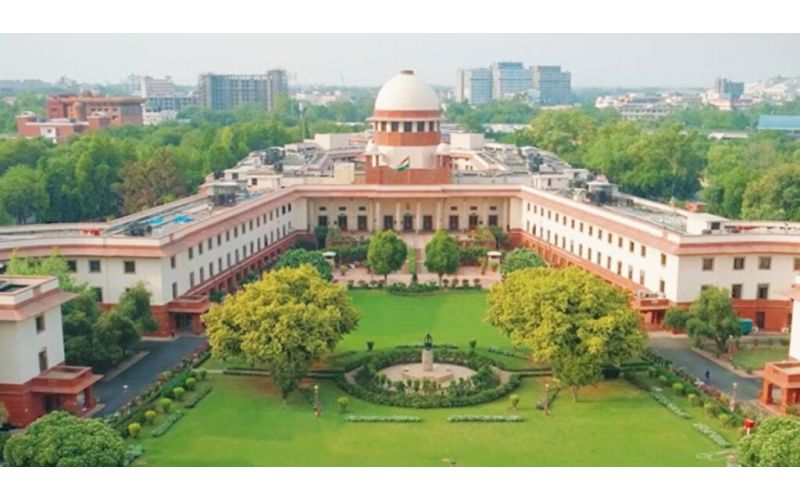
BREAKING| Supreme Court Issues Fresh Guidelines For Senior Designation; Previous Applicants Required To Update Or Submit Fresh Applications
The Supreme Court has issued fresh guidelines for the designation of senior advocates following the May 12 judgment in Indira Jaising vs Supreme Court which modified the criteria for senior designation. The Court has directed that Advocates-on-Record/Advocates who had applied in response ...

Speak With Our
Get a Appointment

